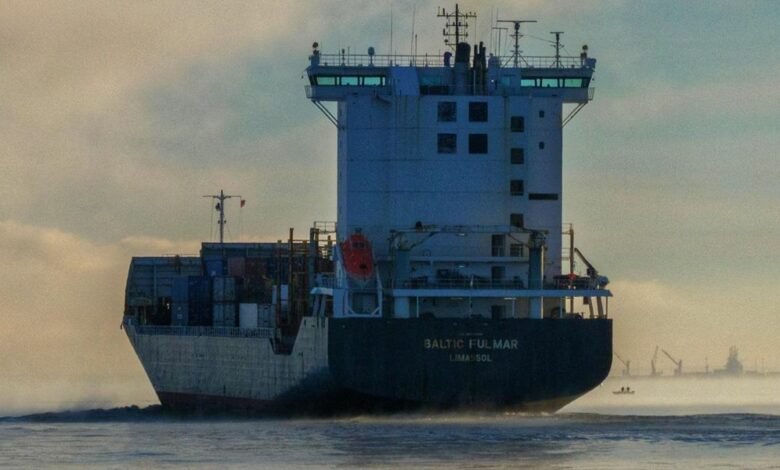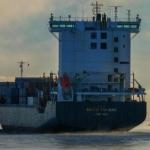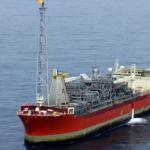Chinese boxship becomes focus of Baltic pipeline damage probe
A Chinese containership is at the centre of a Finnish inquiry into possible sabotage of the Balticonnector gas pipeline linking Finland and Estonia.
Earlier this month, a subsea gas pipeline and a telecoms cable connecting the two countries over the Baltic Sea were damaged, in what Finnish investigators said may have been a deliberate act.
Finnish police said they were focusing on the Hong Kong-registered 1,638 teu Newnew Polar Bear, as its movements coincided with the time and place of the damage.
The 2005-built ex-Baltic Fulmar belongs to Torgmoll’s Newnew Shipping, a Chinese liner primarily serving the Russian trade.
“We will co-operate with Chinese authorities in order to establish the role of the said vessel,” said detective superintendent Risto Lohi, who is leading the Finnish investigation. He added that police have a liaison officer in China who can handle the matter on site.
A Russian MPP, Sevmorput, operated by Atomflot and part of the state nuclear company Rosatom, was also in the area at the time, and Estonian investigators are looking at both ships.
The Finnish National Bureau of Investigation also confirmed the damage was caused by “an external mechanical force” and that they had found “a heavy object” near the damaged pipeline.
“A recently formed huge clump of soil containing probably an extremely heavy object has been found in the seabed,” Lohi added.
The police will attempt to lift the object from the seabed, where it lies deep in the clay, to investigate whether it is connected to the damaged pipeline.
The pipeline’s operator indicated last week that it will take at least five months to fix, leaving Finland reliant on LNG imports for the winter.
A telecoms cable connecting Sweden and Estonia also had a partial outage around the same time, which police believe was caused by outside interference.
The occurrences have raised concerns about the security of energy supplies in the larger Nordic region, prompting NATO to increase patrols in the Baltic Sea.
Underwater explosions in the Baltic Sea last year caused the rupture of three pipelines that deliver natural gas from Russia to Western Europe.





